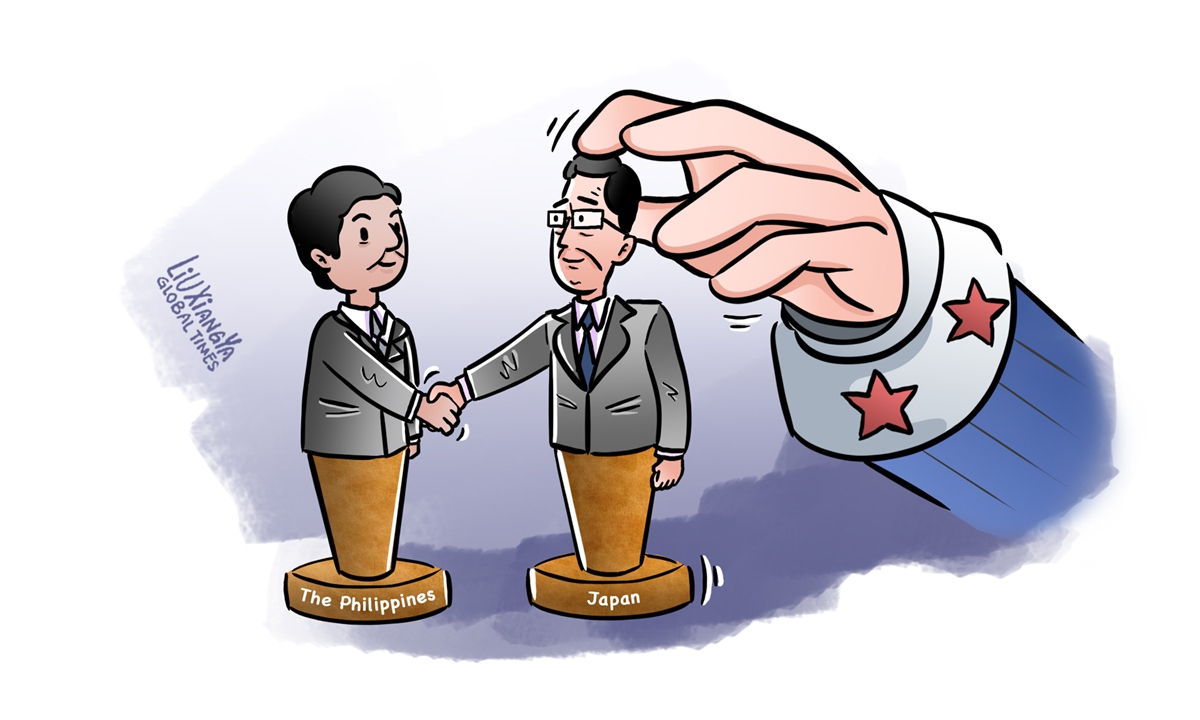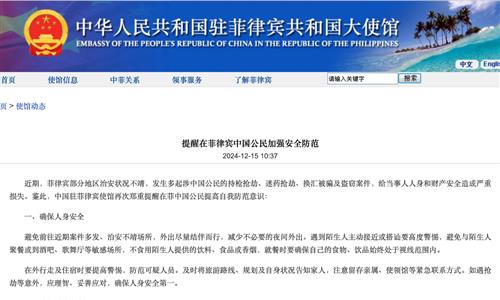Philippines ratifies RAA with Japan, 'pact raises concerns among neighboring countries with potential more security risks': expert

Illustration: Liu Xiangya/GT
The Philippine Senate on Monday ratified a reciprocal access agreement (RAA) with Japan that would allow their militaries to deploy on each other's soil. Chinese analysts said that the agreement signifies that the Philippine government has sacrificed the country's sovereignty in order to cater to the strategic goals and interests of the US in the Asia-Pacific region. They also pointed out that signing so-called reciprocal agreement allows Japan to boost its military strength through testing water step by step, which poses risks to the security of the entire region.
The RAA, the first of its kind that Japan has signed in Asia, will ease the entry of equipment and troops for combat training and disaster response, smoothing military cooperation between Manila and Tokyo, according to Reuters.
The agreement was signed by the defense and foreign ministers of both nations in July, but the deal needed parliament's approval to enter into force.
Chinese military expert Song Zhongping told the Global Times on Tuesday that in reality, this so-called reciprocal access is merely one-sided access. The Philippines has neither the demand nor the capability to access military bases on Japanese soil, so it is more about Japan cooperating with the US to transfer its military strength to the Philippines. The goal is to incite more trouble in the South China Sea in coordination with the US, posing greater challenges to China, Song noted.
The ratification of this agreement signifies that the Philippine government has, in the name of protecting national security interests, substantively sacrificed the country's sovereignty in order to cater to the strategic goals and interests of the US in the Asia-Pacific region, Zhou Shixin, director of the Institute for Foreign Policy Studies at the Shanghai Institute for International Studies told the Global Times.
The Philippines has a Visiting Forces Agreement with the United States and Australia.
Japan, which hosts the biggest concentration of US forces abroad, has similar RAA deals with Australia and Britain, and is negotiating another with France, according to Reuters.
The Japan-Philippines RAA would put other regional countries on high alert, Zhou warned. He said that the Philippines was the key offensive and colonial target of Japan during World War II, which caused significant harm to local people.
Besides, with military support from the US and Japan, the Philippines may adopt a more assertive stance in its policies and actions in the South China Sea, potentially raising concerns among neighboring countries, especially ASEAN members like Indonesia and Malaysia.
Expert also pointed out that if Japan deploys more advanced weapons and equipment in the Philippines, it will inevitably raise alarms among neighboring countries and could trigger an arms race in the region, further escalating tensions in the region.
Signing so-called reciprocal agreement allows Japan to boost its military strength through testing water step by step, which poses risks to the security of the entire region, Song warned. Japan's aggression and colonial rule against Southeast Asian countries, including the Philippines, during World War II already bears serious historical responsibility. "Japan should be more cautious in its words and actions in the field of military security," he said.

